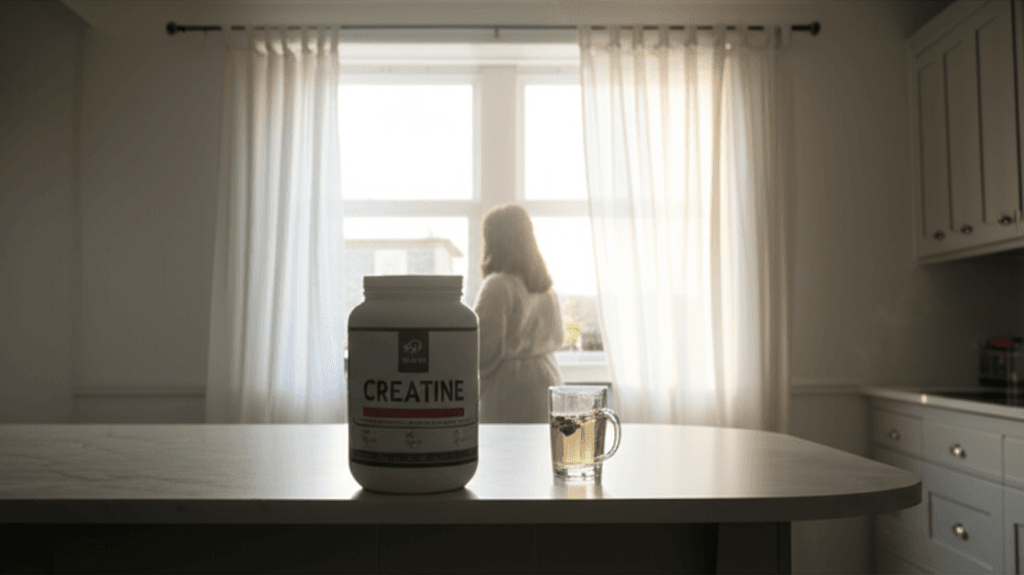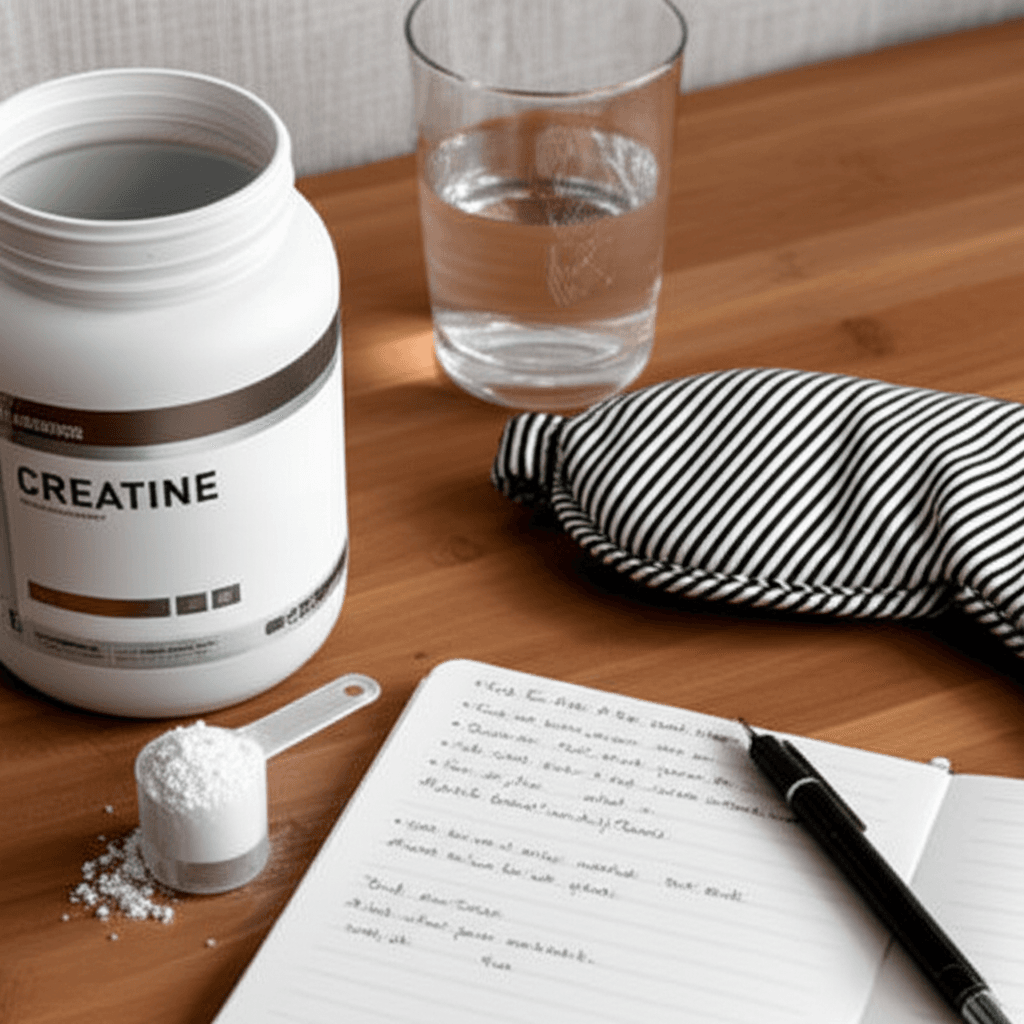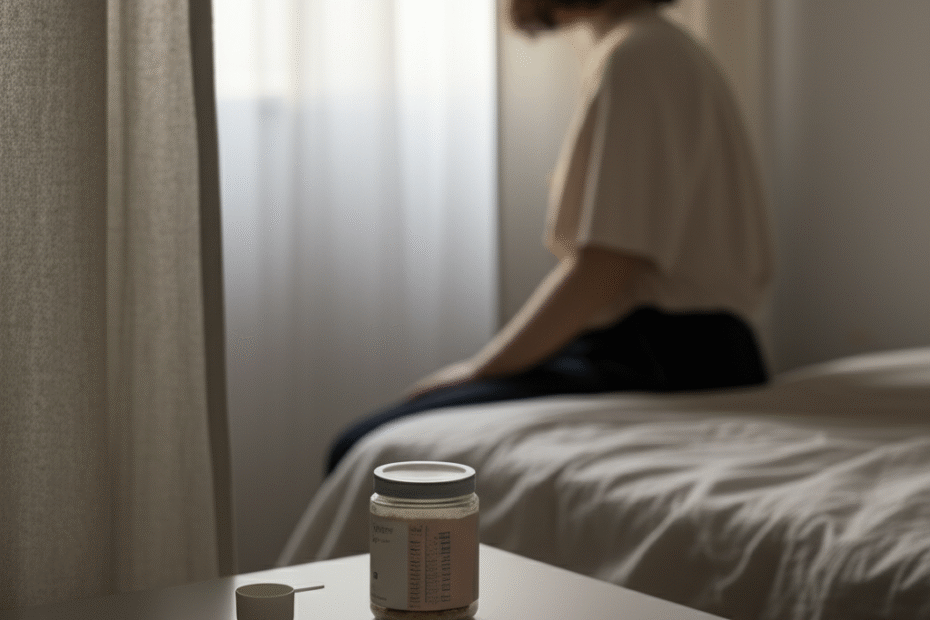Creatine in Modern Wellness
Life sometimes throws us curveballs, leading to periods where quality sleep feels like a distant dream and stress becomes an unwelcome constant companion. In our modern, fast-paced world, many of us are actively seeking ways to support our bodies and minds through these challenging times. Among the various health and wellness approaches, discussions around the potential role of certain supplements, like creatine, have become quite common. While often associated with athletic performance, creatine's broader implications for general well-being are starting to garner attention, particularly when considering its impact on cellular energy throughout the body, including the brain.
How Creatine Supports Energy
Creatine is a naturally occurring compound that plays a vital role in the energy production system of our cells. It’s primarily known for its ability to help regenerate adenosine triphosphate (ATP), which is essentially the body’s main energy currency. When ATP is used, it loses a phosphate group and becomes ADP. Creatine phosphate steps in to donate a phosphate group back to ADP, converting it back to ATP, ready for more energy demands. This rapid regeneration of energy is crucial for high-intensity activities in muscles, but it's also fundamental for many other physiological processes.

Sleep Loss and Cognition
Considering the exhaustive nature of sleep deprivation, our bodies and brains are often operating on a deficit. Feeling groggy, having difficulty concentrating, and experiencing a general sense of mental fatigue are common symptoms. The idea behind exploring creatine for sleep-related challenges isn't about it being a sleep aid in the traditional sense, but rather about its foundational role in cellular energy. If brain cells, for instance, have a more readily available supply of energy through creatine’s action, it’s theorized that this might help to support cognitive function and mental endurance during periods of reduced sleep. It's about providing the brain with the resources it needs to function as effectively as possible, even when rest is suboptimal.
Stress, Resilience, and Energy
Similarly, the discussion around creatine stress relief stems from this same energy-centric perspective. Stress, whether acute or chronic, places significant demands on the body. Our nervous system goes into overdrive, and various bodily systems work harder. This increased activity requires more energy. By supporting the body’s energy production pathways, creatine might contribute to a general sense of resilience.
It’s not about making stress disappear, but rather about potentially helping the body cope more effectively with the energy demands that stress places upon it. When our cells, including those in the brain, have optimal energy support, it might contribute to feeling more capable and less overwhelmed by daily pressures. It’s a way of looking at internal resource management, where supporting foundational energy systems could have a ripple effect on how we experience and react to stressors.

Brain Energy Demands
The brain is a remarkably energy-intensive organ, consuming a significant portion of the body’s total energy. During periods of sleep deprivation or heightened stress, the brain’s energy demands can be particularly high. While creatine is abundant in muscle tissue, it is also present in the brain. The brain’s reliance on a steady supply of energy for neurotransmission, maintaining cell integrity, and supporting complex cognitive processes makes the concept of enhancing its energy reserves an interesting area for broader health discussions. Supplementation is simply one avenue people consider to ensure these essential compounds are available, especially when lifestyle factors might deplete them.
Holistic Wellness and Choices
Many individuals exploring creatine as a supplement are doing so as part of a larger strategy to enhance their overall health. They understand that a holistic approach, encompassing good nutrition, regular movement, and mindful stress management practices, forms the bedrock of well-being. Adding specific supplements to this foundation is often seen as a way to further support the body's natural capabilities. The aim is to create an environment where the body can perform its best, even when faced with less-than-ideal circumstances like insufficient sleep or ongoing stressors. It's about empowering the body's internal systems to function optimally.
Beyond its direct role in energy metabolism, the broader ecosystem of health, including gut health, is increasingly recognized for its influence on mental well-being and stress response. The gut-brain axis, a bidirectional communication system between the gastrointestinal tract and the central nervous system, highlights how intimately connected our physical and mental states are. A balanced gut microbiome, often supported by probiotics, contributes to overall health, which in turn can influence mood, energy levels, and even how we perceive stress. While creatine itself doesn't directly act on the gut microbiome, its consideration as part of a comprehensive supplement regimen underscores a growing awareness that various aspects of our physiology are interconnected.
Choosing to incorporate health supplements into your routine is a personal decision, often made with the goal of supporting your body's natural functions. Whether it's to address specific needs like enhancing cellular energy or to bolster general well-being, the market offers a wide range of options. Understanding how different compounds work and how they fit into your lifestyle is key. For those interested in the potential of creatine to support their body's energy resilience during times of sleep deprivation and stress, it represents one of many tools available in the pursuit of sustained health and vitality. Always remember that maintaining a balanced lifestyle, with adequate rest, proper nutrition, and stress-reduction techniques, remains paramount.
The quest for sustained energy and a calm mind in a demanding world often leads us to explore various avenues of support. From optimizing our daily routines to considering specific supplements, each step is aimed at enhancing our capacity to thrive. Health, in its truest sense, is about creating an internal environment where our bodies can perform their best, adapting to challenges and maintaining equilibrium.
Supplements are often viewed as a way to provide additional building blocks or supportive compounds that might be beneficial when daily demands are high or when specific physiological processes could use a boost. It’p about thoughtful choices that contribute to a resilient and energetic life, helping us to navigate the unavoidable ups and downs with greater ease and vitality. By focusing on overall wellness, including aspects like cellular energy and digestive health, we can work towards a more balanced and energized existence.
If you're seeking to thoughtfully support your body's intricate systems for improved overall well-being, especially during demanding times, consider exploring options that contribute to foundational health. Supplements designed to nurture your body, including those that support Gut Health and Skin & Gut Health, can be a valuable part of your routine. Products like PrimeBiome, found within the broader Health and Probiotics categories, offer a way to proactively address your body's needs. By focusing on essential support for your digestive system, you can contribute to a more balanced internal environment, which may indirectly influence your general sense of vitality and resilience.
Disclaimer: This post contains affiliate links. We may earn a small commission at no extra cost to you. This helps us keep our blog running.
